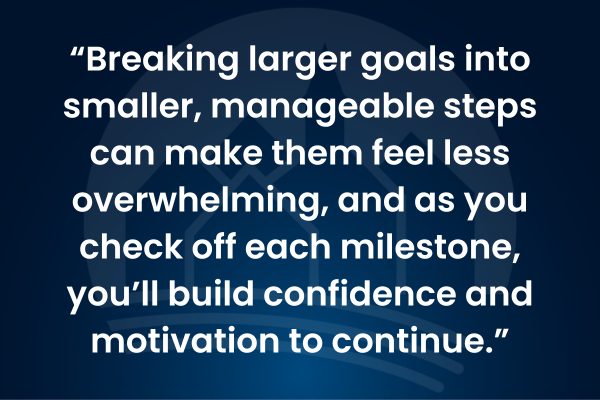- Use Budgeting Tools for Easy Tracking
Managing finances has never been easier, thanks to technology. Today’s budgeting tools and apps provide a convenient way to stay on top of your expenses, allowing you to categorize spending, set savings goals, and receive notifications when you’re approaching your limits. These features can make it easier to visualize where your money is going and identify areas for improvement, making the budgeting process more intuitive and accessible.
If you’re a Kennebec Savings Bank customer, our Online and Mobile Banking tools can further support your budgeting efforts. Our platform offers features to help you track transactions, categorize spending, and set up personalized notifications, empowering you to stay informed and make adjustments as needed. Whether you’re focused on meeting savings targets or just looking to improve spending habits, these tools are here to help you reach your financial goals.
Learn more: The Benefits of Online & Mobile Banking
- Automate Your Savings for Consistency
Automating savings is one of the most effective ways to build a financial safety net. Set up an automatic transfer from your checking account to your savings account on a weekly, bi-weekly, or monthly basis. Starting with a manageable amount, such as $25 per month, can build consistency and make saving feel effortless.
As you become comfortable, consider increasing the amount over time. If you get a raise, for example, direct a portion of it to savings. This “set it and forget it” approach can ensure that you’re consistently working toward your goals without needing to remember to transfer funds each month.
- Track and Limit Impulse Purchases
Impulse purchases can chip away at your budget without you realizing it. One way to curb this spending is by following the 48-hour rule: if you’re tempted by a non-essential purchase, wait 48 hours before buying. Often, you’ll find that the urge passes, and you can save that money or redirect it toward your goals.
Another strategy is to avoid browsing online stores or setting a monthly cap on discretionary spending. Many budgeting apps can help by sending alerts when you’re close to reaching that limit, making it easier to stay on track.
- Make Use of Cash Envelopes for Specific Categories
If digital tools aren’t your style, consider a tried-and-true method: the cash envelope system. Allocate a certain amount of cash to specific categories, like groceries or entertainment, and place it in labeled envelopes. When the cash runs out, you’ve reached your limit for that category. The envelope system can be a helpful, tangible way to keep spending in check.
- Review and Adjust Your Budget Regularly
Life is unpredictable, and your budget should be flexible enough to adapt to changing circumstances. If you experience a major life change—such as moving, having a child, or changing jobs—revisit your budget to ensure it still fits your current financial situation. Even if things are steady, consider reviewing your budget at least quarterly to make adjustments as needed. Small tweaks can help you stay on track and ensure your budget continues to serve your goals.
- Avoid the “All or Nothing” Mentality
Budgeting doesn’t have to be about rigid rules or deprivation. If you slip up or overspend in one category, don’t feel like the whole budget is ruined. Financial progress is often made up of small, consistent efforts rather than perfection. If you have a setback, acknowledge it, learn from it, and move forward with a renewed commitment.
- Educate Yourself on Budgeting Best Practices
Taking the time to learn more about budgeting can empower you to make better financial decisions. There are countless resources available to help you improve your skills, from online articles and free courses to books and podcasts focused on personal finance. Look for topics that align with your goals, such as debt management, saving strategies, or ways to make your money work harder for you.
By continuously educating yourself, you’ll gain the knowledge and confidence needed to adapt your budget as your financial situation changes. This proactive approach ensures you stay on track and better equipped to handle challenges or opportunities that may arise.
Budgeting can feel challenging at first, but with the right mindset and tools, it becomes easier to manage. At Kennebec Savings Bank, we’re here to support you every step of the way. Whether your goal is to save for the future, pay down debt, or simply spend more mindfully, taking small, consistent actions now can set you up for a brighter financial future. Here’s to making this year your best financial year yet!



